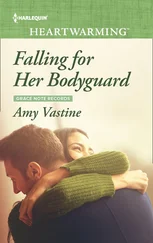"No," she says cautiously, closing but not locking. "Leora, she only knew at the end. Only after it all happened."
I try to understand what this new information says about my story. Or about my imagination. For some reason that possibility never entered my mind, and I think I'm actually relieved inside, relieved at having been so far off. As if a wing that was tied to me has been released.
"And let's say, the boy, in the story-does he even remind you in any way of.?"
She thinks. It takes her a long time to think now. Why did I need to ask her that? So miserable of me, beggarly. For years I used to erase him, but he would crawl right back in. Changing shapes, changing states, appearing in the rain, in the earth, in a cup of black coffee, in tree trunks. And always stubborn, dark, with the desperation of someone afraid to be forgotten. Later, when I discovered the potential he held, our relationship began to stabilize; I already knew where to find him whenever I needed a quick whirl, and at a more advanced stage I even knew how to produce him myself. A revolving door at the hardware store in Finchley that you had to spin through quickly a few times (it was the rapid motion coupled with the reflections); or bending down, supposedly to tie a shoelace, next to the exhaust pipe of a car whose engine has just been turned off (ten, fifteen quick breaths was all it took; European cars were preferable to American ones for this purpose). There was also an ivy bush in the garden of a church in Hen-don, a huge one, diseased, maybe dead already, but still imperial and abundant with intricate dry branches that created an entire audience of almost-human faces. And there were these sores of a particular, terrible kind, which I saw only on the faces and arms of retarded kids taken out for walks on Primrose Hill; they would walk by, always at the same time, opposite the courier's office where I worked. And a few other hidden reconstruction methods that would take me out of context for a few seconds and let me gallop along a sideline with a sense of dizziness and rapid depletion, a unique and exclusive epileptic seizure, not entirely unpleasant, which I invented for myself-my own private high, my little creation, which grew more and more sophisticated every day.
"The boy. I'm getting used to him."
Getting used to? I try to understand what she's telling me. It doesn't sound good. It's not like getting Leora wrong. At once I'm desperately removed from reality again, as remote as I was back then, when it happened. I put the pages down on the coffee table nearby, take my glasses off, and rub my eyes, which are starting to sting. Again the familiar pinch, that the world is a kind of huge game of musical chairs and I can never get a chair, not even with her-especially not with her. I can already see so clearly that she's not even capable of entering my story. She's always just looking at it from the side, remembering what really happened and scorning my pathetic, limited imagination. She doesn't have to be a seer-she must tell herself after every piece of nonsense I utter-I gave up on that a long time ago, but at least a drop of intuition?
"When you read," she says in a slow, grating voice, lethargic from the disease and the medication, "I feel as if the things you're saying really happened."
My mouth is dry. My left foot is really going wild. I wait for details. Maybe she'll finally say something about what really happened. She gestures for me to go on.
Sometimes, at the end of class, she puts him on a chair and teaches him the secret of correct sitting, how to lengthen his thigh muscles, his hands and calves, and she draws the root pulled down from his tailbone into the earth, sucking energy from it and discharging the toxins of body and soul into it. Then she kneels at his feet and checks to see if his long, brown bare feet are planted firmly on the ground. She plants them by pressing each toe separately. "Is this yoga too?" he asks, and she says it's her yoga, even though she's never sat a student as young as him on a chair in class, always on the floor, but perhaps of all the things she's teaching him, it will be the memory of this simple white plastic chair that he'll take with him when he leaves, she thinks. Like that man she read about once-she doesn't even try to remember where, no chance-who dreamed that he came to Paradise and was given a flower there, and when he awoke he was holding a flower. "The most important thing is to remember how to step properly," she says. "Spread your toes, hold on to the earth happily, delight in it with every step." She recites to him: "Death begins in the feet, that's where our self-neglect develops from, our surrender."
From one hour to the next, she starts to see his body from the inside, the colors of his different senses. His points of resistance, rough and dark. Thrills of amazement and happiness pass through him like rays of light, and they instantly ignite a spark in her. She opens her eyes, and he does too-perhaps he heard my eyelashes, or maybe he's just trained always to be on guard, she thinks-and she smiles her warm smile at him, the one she has recently been feeling on her face like the tattered grimace of a tired clown, a dried-up old Pollyanna. She asks what he'd like to do now, what he'd like to change, to fix, to learn.
"Whaddayoumean?" He raises his lovely eyebrows in wonder. "You can fix things with yoga?"
She smiles. "Of course you can. Yoga is-" Where to begin? she wonders. And how? We have so little time to be together, and anything I say will be superficial and cheap. She breathes deeply. "Yoga is a system, it's just a system that helps us increase our physical and spiritual strengths, and the connection between our soul and our-"
And she stops, because his pupils are lifting as if pulled by a string, and his eyes almost close with pleasure. Enchanted, she watches his fluttering eyelashes until his look returns.
"Say it again."
She says the words slowly, looks at his face with tense expectation: open sesame. And again she sees the magic work. Sensing an urge to bring it about again, she adds something else that used to hang on her studio wall in Jerusalem: "When my consciousness is clear and pure, reality will be precisely reflected in it." There were times when the meaning of that sentence was as real and lucid to her as a bodily sensation, as taste or scent. Now she feels only the bite of emptiness, but when she sounds the saying in his ears, word after word, she can feel his soil moistening. It's unbelievable, she thinks, and strains her brain to fish out something from her first teacher: "A mistaken thought is incorrect knowledge, which is not based on the shape of the thing." But this time he looks at her without any expression. There is a long and empty silence, and Nili becomes worried. "Do you understand what that means?"
"No. What's it mean?"
"I don't. Look, once, years ago …" She stops again, embarrassed, because even ten and twenty years ago, even when she recited it to her students, she didn't completely understand. In fact, it was always that way, not just where yoga was concerned. Always, when the air vibrates from the gong of a polished and determined sentence, or some hammered-out, echoing truism, Nili feels a kind of dull sting in her left temple, the singe of an already familiar insult, and she closes off and the words dissipate and float in her mind with a kind of weary surrender, turning into soft clouds of impressions that slowly evaporate. That's the way I take things in, everything with me is intuition, she explains to herself and to her loved ones, with a shrug of her shoulders. I'm a seer, not a knower.
"Listen, the truth is, I don't really go in for abstract things, and anyway, I'm not that great with theory," she bursts out with strange eagerness. "Or with facts, actually," she is somehow driven to add with a well-practiced, crooked little smile. "Facts somehow never really sink in with me. That's it, that's the situation." And she is quiet, amazed at herself.
Читать дальше












